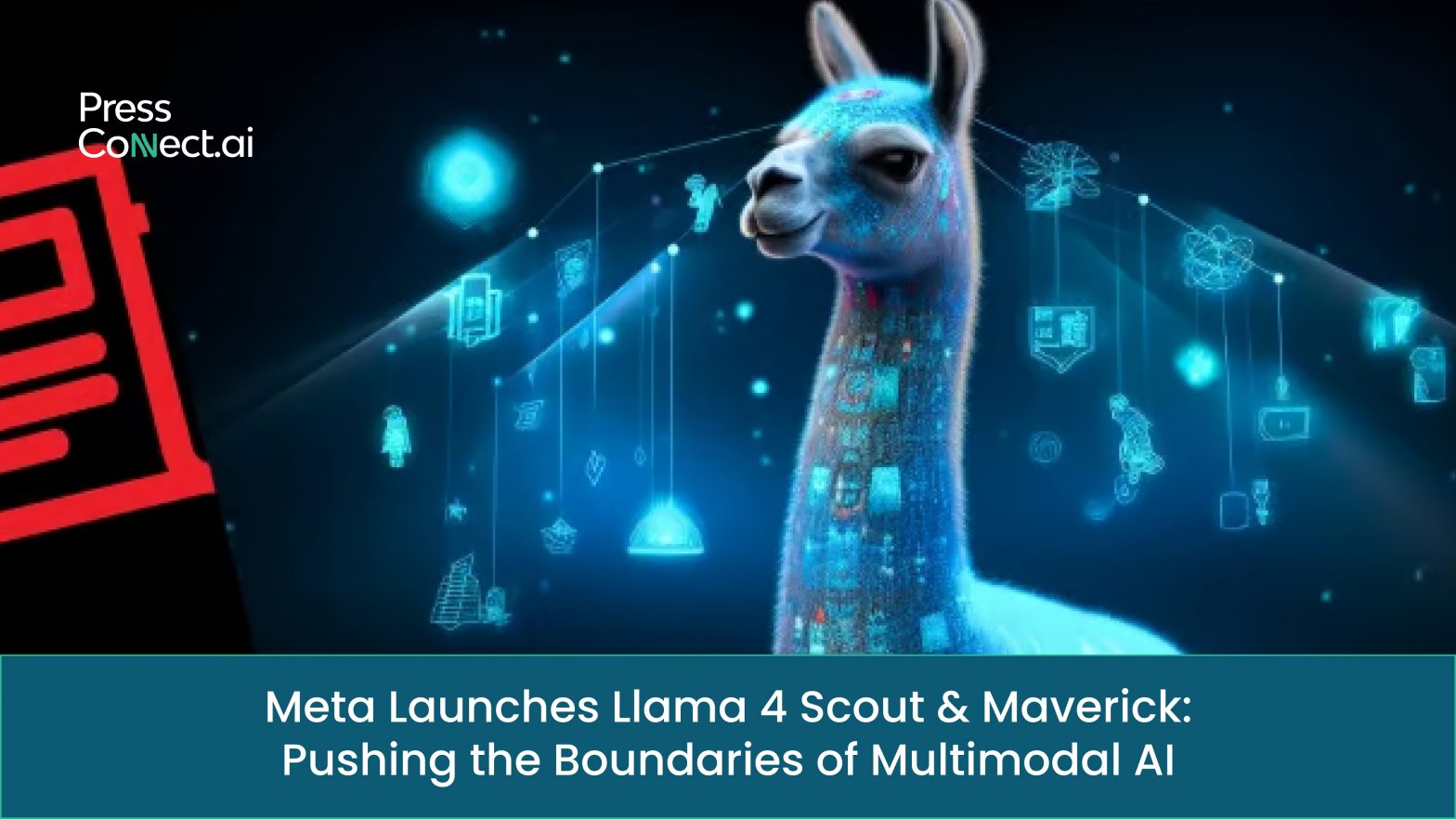Meta Unleashes Llama 4 Scout & Maverick: The Future of Open, Multimodal AI Has Arrived
Meta Platforms introduced the two most developed large language models (LLMs), Llama 4 Scout and Llama 4 Maverick, through an official launch on April 5, 2025. The advanced models represent a pivotal part of Meta’s dedicated approach toward AI dominance by fostering open-source development and multimodal abilities, which places them against competitors such as OpenAI, Google DeepMind, and Anthropic.
The multimodal design of Llama 4 enables this AI framework to handle information integration among different forms, such as text data together with images and audio and video content for conducting human-like interactive processes. Llama 4 Scout, together with Maverick, introduces flexible services for AI applications that can perform descriptive image captioning, voice data analysis, and written script-to-video generation.
Meta asserts that its new models provide exceptional multitasking capabilities, which will enable the development of future-generation tools targeted at content creators, along with developers, enterprises, and educational platforms. Meta supports an open source model of distribution to advance AI development capabilities for users while seeking community support through collaborative innovations.
During the dual launch, Meta displayed Llama 4 Behemoth as their most advanced model to date. Behemoth stands as “one of the world’s most intelligent LLMs” and functions as a “teacher” model to instruct up-and-coming AI systems in much the same way student-mentor patterns work in RLHF (Reinforcement Learning from Human Feedback) reinforcement learning frameworks.
The planned $65 billion investment for AI infrastructure during 2025 marks the timing of this strategic AI release by Meta. The $65 billion budget supports high-performance GPU clusters and custom silicon chips alongside expanded data center capacity to quicken the training process and system deployment within Facebook, Instagram, WhatsApp, and the metaverse environment.
The progress has not followed a perfectly smooth path. According to The Information, Llama 4’s delayed launch occurred because the models performed poorly in logical reasoning tests and mathematical accuracy evaluation alongside voice conversation fluency tests compared to GPT-4 which achieved higher benchmarks. The defective features of Llama 4 prompted Meta to make its last attempt at functionality improvement before public release.
Meta’s AI roadmap has entered a fresh phase after the launches of Llama 4 Scout and Maverick. Meta is putting substantial funds behind its AI initiative because it embraces open-source methodology, implements robust multiform capabilities, and demonstrates firm commitment to AI as a foundational engine for its upcoming developments.
The AI competitions between companies, including Meta’s forward-thinking actions through their extensive technical abilities and open collaborative practice, will redefine both AI processing and machine creative abilities.
Suggested Read:
Meta Announces ‘LlamaCon’: Its First Generative AI Developer Conference on April 29
OpenAI Unveils GPT-4.5: A Step Forward or a Placeholder for GPT-5?






